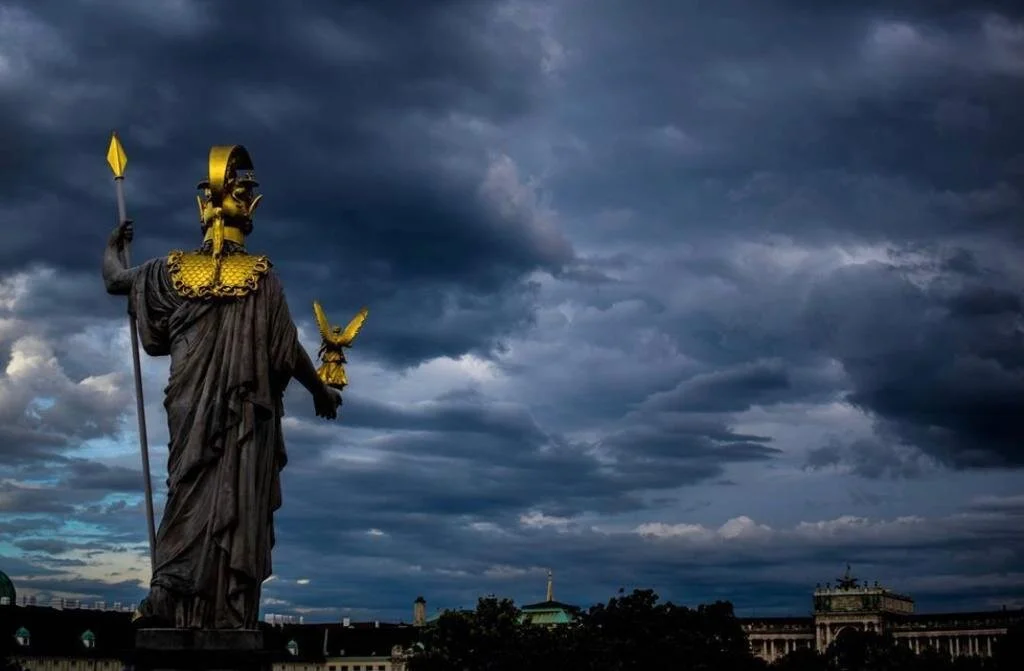A few days ago, Austria and whole Europe were shocked by a terrorist attack in the heart of Vienna. It was not the first such attack, but it was a bloody one, with four civilians killed and twenty more wounded. It became clear pretty soon, that this murder had an Islamist background. The murderer was well-known to the police even beyond the Austrian border.
3 FRAGEN 3 ANTWORTEN: Heinz Gärtner über die US Wahlen
INTERESSE FÜR ÖSTERREICH DÜRFTE UNTER BIDEN SCHRUMPFEN: Viel Spielraum verspielt!
Österreich hat durch die Annäherung an die US-Regierung von Donald Trump in den letzten Jahren viel an außenpolitischem Spielraum verspielt und damit einen fliegenden Start nach dem Präsidentenwechsel in der USA versäumt. Durch die einseitige Positionierung etwa im Nahen Osten oder dem Iran-Streit hat Wien die Glaubwürdigkeit der Unabhängigkeit eingebüßt. Österreich ist nicht mehr am Radar der Biden-Administration, wenn überhaupt, dann negativ.
RABIN‘S LEGACY 25 YEARS AFTER HIS DEATH
On November 4th 1995, the then Israel’s prime minister Ytzhak Rabin was killed. For many in the Middle East, not only Rabin was killed, but also the peace process, which he moved forward. Rabin was no peacenik, something he criticized at his inner party rival, Shimon Peres. Rabin was a soldier and a warrior. He had always the security of Israel and its predominately Jewish population on his mind.
Religion muss von Terror gelöst werden
Es gibt viele Definitionen von Terrorismus und sie enthalten verschiedene Elemente. Vor allem ist Terrorismus politische Gewalt, die sich bewusst und wahllos gegen Zivilisten richtet. Die Terrorattacken in Frankreich erfüllen diese Bedingungen. Terrorismus gibt es unabhängig davon, ob er politischer, ideologischer, oder religiöser Natur ist.
STANDARD BLOG: 65 Jahre Neutralität, 25 Jahre EU-Beitritt: Ein Widerspruch?
Die europäische Integration als Modell zur Überwindung nationaler Konflikte hat viel für die innere, aber auch äußere Sicherheit beigetragen. 25 Jahre nach dem EU-Beitritt Österreichs sollten wir uns gerade am Nationalfeiertag, an dem die fast schon identitätsstiftende "immerwährende Neutralität" gefeiert wird, der Frage stellen, was dies heute noch bedeutet.
Der Standard Blog: Gesellschaft - Macht - Frieden
War in the Caucasus: The Moscow Deal, the continuous fighting and the role of the OSCE
What we are witnessing since late September in the Nagorno-Karabakh region is a new full-scale war. It is affecting civilians and soldiers alike on both sides with hundreds of casualties. Nevertheless, it took Russia as a regional stakeholder a long time to summon Azerbaijan and Armenia to Moscow for a high-level crisis meeting. After drawn-out deliberations on the 10th October, the rivals finally agreed to a humanitarian cease-fire for the purpose of exchanging prisoners and casualties. Despite a re-confirmation of the truce on the 17th October, fighting is still continuing.
US ELECTIONS: WHAT IS AT STAKE FOR THE EU?
Certainly, the outcome of the US presidential elections will have some important consequences for the EU. For many observers and political actors, good transatlantic relations are vital for European security and peace. And they regard good relations between the two sides of the Atlantic as traditional and even „natural“. But is it really true, that good transatlantic relations are natural and obvious? And any other kind of relations are historically an exception?
War in the Caucasus: State, no State? A Legal Perspective on the Nagorno-Karabakh Conflict
The most recent escalation in the conflict over Nagorno-Karabakh sheds light on a number of complex legal issues. On the one hand, the region still belongs to Azerbaijan even although it is factually controlled by the self-declared “Nagorno-Karabakh Republic”. On the other hand, that by itself does not provide a free pass to retake lost territory by force. A few observations on the legal aspects of the current escalation between Azerbaijani and Armenian forces.











